Research, editing : Gan Yung Chyan, KUCINTA SETIA
News on U.S., Taiwan, CCP
News (1)
The increase in the garrison is the beginning... Pompeo: Taiwan should be recognized as a free and sovereign country
Image : Pompeo believes it is time to recognize Taiwan's statehood. (Associated Press)
The U.S. newspaper Wall Street Journal reported that the U.S. intends to increase the number of U.S. troops stationed in Taiwan by four times the current number. In this regard, former U.S. Secretary of State Mike Pompeo said that increasing the presence of troops in Taiwan is a start, and now Taiwan should be recognized as a free and sovereign country.
Pompeo wrote on Facebook, "Sending more troops to Taiwan is a start. Now, we should do the right thing, which is to recognize Taiwan as a free, sovereign nation."
According to the Wall Street Journal report, the number of U.S. troops stationed in Taiwan may increase from about 30 a year ago to 100 to 200, strengthening the training program for Taiwan's military. The Michigan National Guard is also training a group of Taiwanese military units, including in an annual multinational exercise at Camp Grayling in the northern part of the state, according to sources.
In this regard, the White House only emphasizes that the defense relationship and support between the United States and Taiwan are based on the current threat from China under the one-China policy. This principle has not changed.
News (2)
Will Tsai Ing-wen visit the U.S. before August? Japanese media revealed that Taiwan officials confirmed: 3 possible solutions
Editor : Zhou Zixin / https://news.tvbs.com.tw/world/2052528 / Image : Japan's "Sankei Shimbun" reported that Tsai Ing-wen will visit the United States before August. (Photo/Dazhi Video Reuters)
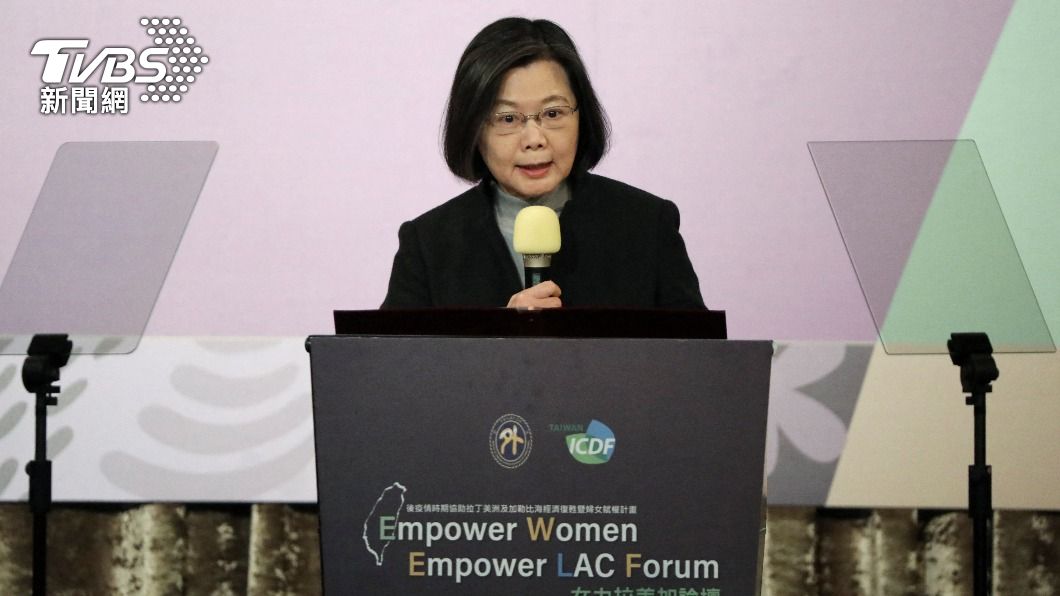
Japan's "Sankei Shimbun" reported today (25 February 2023) that President Tsai Ing-wen will visit the U.S. before August 2023, citing multiple sources, to demonstrate the friendly relationship between the U.S. and Taiwan as the "diplomatic crystallization" of the Tsai administration. Although the three scripts for Tsai Ing-wen's visit to the United States are still to be determined, in any case there will be "informal talks" with American politicians. Although the Ministry of Foreign Affairs earlier denied that Tsai Ing-wen has a specific plan to visit the United States, once she does make the trip, it will be her second visit to the United States since July 2019, which is bound to trigger a strong backlash from the Beijing authorities.
"Sankei Shimbun" Taipei branch director Akio Yata reported that many Taiwanese officials have confirmed that Tsai Ing-wen has decided to visit the United States before August this year and has coordinated with the United States. Given that Tsai Ing-wen will officially step down in May 2024, this trip will not only be her first visit to the United States since July 2019, but will also be the "diplomatic crystallization" of the Tsai administration, showing the close relationship between the United States and Taiwan.
According to people familiar with the matter, Tsai Ing-wen may currently plan to visit the United States in three forms. The first is to be invited to give a speech at his alma mater, Cornell University, similar to what former President Lee Teng-hui did in 1995; The third is to go to Paraguay, a friendly country in South America, to attend the presidential inauguration in August, and visit the United States. According to reports, Foreign Minister Wu Zhaoxie had a low-key meeting with several U.S. officials in the U.S. on the 21st, and the topic of discussion included the plan of the president's visit to the US. No matter what the final decision is, Tsai Ing-wen plans to hold informal talks with U.S. dignitaries.
Image : Tsai Ing-wen can demonstrate the close relationship between the United States and Taiwan through her visit to the United States. (Schematic / Dazhi Image Reuters)
However, Tsai Ing-wen's choice to visit the United States against the background of deteriorating relations between the United States and China and China and Taiwan is bound to be strongly opposed by the Beijing authorities. A source from the Democratic Progressive Party said, "Military tensions near the Taiwan Strait are heating up, and many people worry about whether (Taiwan) can rely on the United States in an emergency." Highly regarded, it will be a great reassurance."
News (3)
Response from the Republic of China Ministry of Foreign Affairs
The Ministry of Foreign Affairs pointed out that President Tsai has visited and stopped in the United States many times since taking office. The most recent time was in July 2019 when she led a delegation to visit Latin American friendly countries, and stopped in New York and Denver in the United States on the way out and back, and received high-level courtesy from the United States. Reception has also set many good precedents.
The Ministry of Foreign Affairs emphasized that arranging high-level visits abroad has always been a key task of the Ministry of Foreign Affairs. If there is a specific plan for the president's visit, the Presidential Palace and the Ministry of Foreign Affairs will take the initiative to explain it to the public in due course.
News (4)
Worry about the CCP’s invasion of Taiwan! Blinken: The crisis in the Taiwan Strait is not an internal issue. Bolton: U.S. warships should be stationed in Kaohsiung Port
Reporters : Liu Tingting, Ni Jiahui / https://news.tvbs.com.tw/politics/2052422
U.S. Secretary of State Blinken recently pointed out that the reason why the world is so concerned about the Taiwan Strait crisis is that "this is not an internal affairs issue as China claims." Domestic experts believe that although there are precedents for US military scientific research ships, the probability of US coastal patrol ships calling at ports is relatively high.
Former White House national security adviser Bolton: "I think there is still a lot that can be done, not just to increase Taiwan's military capabilities. I would suggest that the US Navy warships be stationed in the Kaohsiung Port in southern Taiwan."
Former U.S. President Trump's national security adviser, and then shouted that in addition to sending more troops to assist in training, the United States can do more!
Lin Tinghui, deputy secretary-general of the Taiwan Society of International Law: "So when Taiwan becomes a gap in the first island chain, it will be disadvantageous for the US military."
Lin Yingyou, assistant professor of the Institute of Strategy at Tamkang University: "I personally think that the probability of the (U.S.) Navy's warships berthing directly is not high. On the contrary, it is more likely that the U.S. Coast Guard will sign an MOU with us. "
Pointing out that in 2018 there was a precedent for a U.S. scientific research ship docking in Kaohsiung. Taiwan-U.S. exchanges have become more staged in recent years, which is also related to cross-strait tensions. For China's favorability, with a full score of 10, Chinese people's average score for the United States is 2 points higher than that of the other side. There are even 46% of people who believe that Taiwan-U.S. relations are more important to Taiwan's security than cross-strait relations.
U.S. Secretary of State Blinken on 23 February said, "One of the reasons why the whole world is so concerned about the crisis in the Taiwan Strait is that this is not an internal affair based on sovereignty, as China claims, but it is indeed a matter for the whole world."
For Blinken's clear statement, the Republic of China Ministry of Foreign Affairs immediately expressed affirmation and sincere thanks, but does this also indicate that the US's strategic ambiguity policy has indeed changed?
Fan Shiping, a professor of East Asian Studies at Normal University: "As the CCP's verbal and military threats against Taiwan become more and more intense, I think the US's position (compared to before) is becoming more and more vague."
In addition, this think tank poll pointed out that cross-strait exchanges, 85% of people believe that Taiwan’s sovereignty cannot be underestimated, and 74% of people think it is unacceptable. On the premise of one country, two systems, the situation in the Taiwan Strait is treacherous, and the degree of attention on domestic discussions between the United States and Taiwan has also increased.
News (5)
CNN's troops split into two groups to watch the South China Sea, and were warned by the communist army broadcast, and J-11 was also sent to accompany the flight
Reporter : Zhang Zhengan / Image : Weibo / https://news.tvbs.com.tw/world/2052510
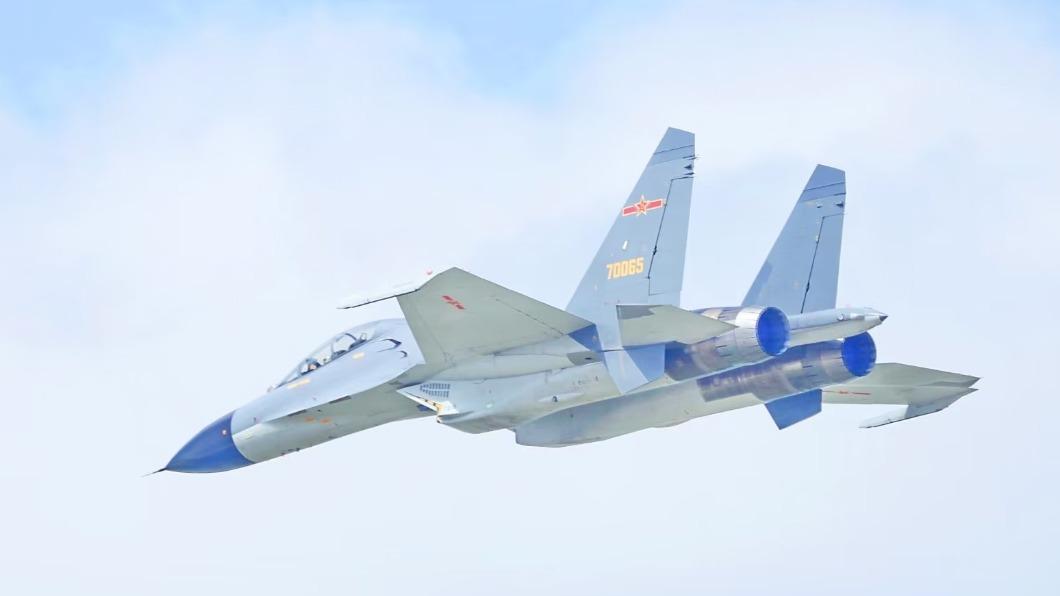
CNN, from Taiwan and the Philippines, observed the mainland's military deployment in the South China Sea in two ways. Unexpectedly, after these two groups of people approached the South China Sea by plane, they immediately received a warning broadcast from the mainland, demanding to leave immediately. Among them, the interview team who entered the South China Sea from Taiwan even discovered that the People’s Liberation Army sent J-11 fighter jets to closely follow the US P-8 patrol planes, and the closest distance between the two planes was only 152 m at one time.
CNN reporters boarded a U.S. Navy P-8 patrol plane and entered the South China Sea from above Taiwan, hoping to see the nine-dash line area advocated by Beijing from the air.
CNN senior international correspondent Ivan Watson: "We are flying at a low altitude of 300 meters above sea level in eastern Taiwan, and we are looking for Chinese destroyers."
CNN did find that the Chinese destroyers were sailing on the sea, but they suddenly received a warning from the Chinese army after a while.
Announcer at the ground station of the People's Liberation Army: "The US military plane here is the PLA Air Force. You are approaching the airspace of China. Keep a safe distance, otherwise you will be intercepted."
The CNN reporter looked out the window and found that the J-11 fighter jets of the People's Liberation Army had long been watching, and the wings of the two planes were only 152 m apart at one point.
CNN senior international correspondent Ivan Watson: "China's aggressive posture is pushing countries in the region, such as Japan to significantly increase defense spending, and the Philippines to ask the United States to reach an agreement to expand the presence of the US military."
CNN not only observed from the sky over Taiwan, they also followed the Philippine Coast Guard out to sea.
They flew to the landing ship Sierra Madre, which has been monitoring the movement of the Communist army near the West Philippine Sea, but once again the CNN reporter received a warning from the mainland.
CNN Philippines senior correspondent David Santos: "Not long after takeoff, we received this roaming text message from China Telecom saying welcome to China, which shows that China's signal is very strong here."
The mainland coast guard ship has been operating in the waters around the Aiyuyin Reef since it fired lasers at the Philippine Coast Guard at the beginning of this month. Whether it is the Philippines or the United States, no matter from the air or the sea, as long as it is close to the mainland around the South China Sea, it will issue warnings. , Although it has caused protests from neighboring countries, the Communist Army is still the same, as if it has managed the South China Sea as its own territory.
News (6)
Former White House National Security Adviser calls on U.S. to recognize Taiwan, Warships stop in Kaohsiung
Image : Former White House National Security Adviser Bolton affirmed the decision to increase the number of U.S. troops stationed in Taiwan. He even suggested that U.S. warships berth at Kaohsiung Port and include Taiwan in the East Asian collective defense organization. He also reiterated his call for formal U.S. diplomatic recognition of Taiwan. (Reuters)
Former White House national security adviser Bolton affirmed the decision of the US military to increase the number of people stationed in Taiwan. He also suggested that U.S. military ships berth at Kaohsiung Port and Taiwan should be included in the East Asian collective defense organization. He also reiterated his call for formal U.S. diplomatic recognition of Taiwan.
The Wall Street Journal recently quoted an unnamed US official as saying that the US plans to station 100 to 200 troops in Taiwan in the next few months, up from about 30 a year ago. The increased presence of U.S. troops in Taiwan would expand the Pentagon's long-held public training program based on providing Taiwan with the necessary self-defense capabilities without angering Beijing.
U.S. officials said that the addition of U.S. troops stationed in Taiwan will not only train the national army to operate U.S. weapons, but also provide tactical guidance on preventing Chinese attacks. But the officials declined to release further details.
When John Bolton spoke with Michael Duffy, the editor-at-large of the Washington Post, when asked his opinion on the matter, he said that increasing the deployment was the right decision.
Bolton, who has always been very friendly to Taiwan, believes that "there is more that can be done." Considering what China has been saying and preparing, "we must assume that the time is short", not only to increase Taiwan's military strength, but also the United States should show more support.
Bolton pointed out that the era of strategic ambiguity toward Taiwan is over. He suggested that U.S. naval ships should dock at Kaohsiung Port so that more Americans can train and assist Taiwan's military.
Bolton also reiterated his call that the U.S. should give Taiwan full diplomatic recognition and should begin to include Taiwan in the East Asian Collective Defense Organization, along with Japan, South Korea, Australia and others, because when Taiwan has more ties to other countries that fear provocation from China, The more it can deter China's threat to Taiwan.
This is not the first time Bolton has called for US diplomatic recognition of Taiwan. He wrote an article in the Taipei Times in 2000 explaining why the United States should grant Taiwan full diplomatic recognition.
News (7)
Poll: 69% think China poses a serious threat to Taiwan Taiwan-US relations are more important than cross-strait relations
Reporter : Wu Shuwei / https://news.ltn.com.tw/news/politics/breakingnews/4222277 / Image : The China Asia-Pacific Elite Exchange Association hosted a symposium on "Anniversary of the Russia-Ukraine War: The latest poll on the situation between the United States, China and Taiwan". (Photo by reporter Tian Yuhua)
It has been one year since the Russia -Ukraine War broke out, and it has also attracted the attention of all countries in the world to Taiwan Strait security issues. The China Asia-Pacific Elite Exchange Association released the latest poll today. 69% of the people believe that CCP China poses a serious threat to Taiwan, and 76.7% of the people believe that between the two powers of the United States and China, the United States is still more influential in the world. At the same time, 49.6% and 46% of the people think Taiwan-U.S. relations are important in terms of economics and trade and security, respectively, more than 37.3 and 40.7% who think cross-strait relations are important.
The China Asia-Pacific Elite Exchange Association held a symposium on "Anniversary of the Russia-Ukraine War: The Latest Poll on the U.S.-China-Taiwan Situation" at the Alumni Hall of National Taiwan University this morning, inviting many scholars and experts to attend. According to polls, the degree of favorability is calculated on a scale of 10 points. The Taiwanese people's perception of the United States and China as two major powers, the average feeling of the United States is 5.78 points, and the feeling of preference; the average feeling of China is 3.76 points, which is somewhat disgusted.
If we further analyze the preferences of various political parties, the DPP scores 7.21, the KMT 4.46, and the People’s Party 5.25 for the United States; and for China, the DPP scores 2.07, the KMT 5.65, and the People’s Party 4.32.
In addition, 69% of the respondents believe that China poses a serious threat to Taiwan, and it is obvious that they should not accept more than should be accepted when cross-strait exchanges should accept different conditions such as one country, two systems, dwarfing sovereignty, and the 1992 consensus. 74.4%, 85.9%, and 48.7%, showing that most Taiwanese people believe that cross-strait exchanges should not presuppose any political preconditions.
The poll also asked the public, among the three political parties, the DPP, the Kuomintang, and the People's Party, which political party can best safeguard Taiwan's sovereignty? 41.8% of the people believe that the DPP can best safeguard Taiwan's sovereignty, followed by 23% of the KMT and 10.6% of the People's Party.
Wang Zhisheng, secretary-general of the China Asia-Pacific Elite Exchange Association, pointed out that from the analysis of the age groups of the polls, Taiwanese people under the age of 40 think that Taiwan-US relations are more important than cross-strait relations, while people aged 50 to 60 think that cross-strait relations are more important than cross-strait relations. Regarding the relationship between Taiwan and the United States, it can be seen that the younger the ethnic group, the more they care about the close relationship between Taiwan and the United States, and the more alienated they are from cross-strait relations.
Wu Sezhi, a researcher at the Cross-Strait Policy Association, said that although nearly 70% of the people believe that China poses a serious threat to Taiwan, 25.8% or one quarter of the people think that China’s threat to Taiwan is not serious. This kind of thinking may make the Kuomintang manipulate There is room for skepticism about the United States, pro-China, and harmony with China, and the rumors of China, Russia and Russia manipulating the United States' plan to destroy Taiwan are based on the fact that the Taiwanese people have such awareness and let it ferment.
Fan Shiping, a professor at the Department of East Asian Studies at Normal University, pointed out that from the results of the polls, the CCP must recognize that the Taiwanese people’s view of sovereignty is beyond blue and green, and the CCP’s policy towards Taiwan is one country, two systems, but the one country, two systems Taiwan plan has no market in Taiwan, and “wait Maintaining good relations is the mainstream public opinion in Taiwan."
The survey was conducted from February 22 to February 23. This time, 1,035 people over the age of 20 in 22 counties and cities across the country were successfully interviewed, and the sampling error was plus or minus 3.05% at the 95% confidence level. The method of this survey is parallel interviews with local calls and mobile phones. The local calls are based on Chunghwa Telecom's home phone numbers. Stratified random sampling is carried out according to the electoral population of each county and city. The weighting method is based on the population statistics of Taiwan in January 2023 released by the population database of the Department of Household Affairs of the Ministry of the Interior, and multiple repeated weighting processes are used for the administrative area of household registration, gender, and age.
Image : According to polls, the degree of favorability is calculated on a scale of 10. The Taiwanese people's average opinion of China is 3.76 points, which is somewhat disgusting. (Provided by China Asia Pacific Elite Exchange Association)
Image : The poll also asked the public, among the three political parties, the DPP, the Kuomintang, and the People's Party, which political party can best safeguard Taiwan's sovereignty? 41.8% of the people believe that the DPP can best safeguard Taiwan's sovereignty, followed by 23% of the KMT and 10.6% of the People's Party. (Provided by China Asia Pacific Elite Exchange Association)
News (8) to (11) / https://news.ltn.com.tw/news/politics/breakingnews/4222301
News (8)
Cai Mingyan took over as Director of National Security, Australian expert analysis: Taiwan has become an intelligence sharing country
Image : Cai Mingyan took over as the head of the National Security Bureau, and Australia's experts on China have an advantage in analysis. (file photo)
President Tsai Ing-wen recently appointed Cai Mingyan, who was the former vice minister of foreign affairs, as the new director of the National Security Bureau, setting a record for the first time that the diplomatic system has taken over the National Security Bureau. Experts on China issues in Australia analyzed that although such a decision surprised the outside world, it also reflected Taiwan’s transformation in intelligence collection and sharing in response to escalating and changing security threats, and it began to move towards the direction of an intelligence-sharing country. .
Corey Lee Bell, a researcher at the Australia-China Relations Institute (UTS ACRI) at the University of Technology in Sydney, Australia, said in an article that Cai Mingyan appears to be an outsider in intelligence operations, but in fact he is more qualified to be the director of national security than his predecessor Chen Mingtong.
News (9)
Cai Mingyan's qualifications to take over as Director of National Security
First of all, Cai Mingyan is a Ph.D. from the Institute of War Research, King's College London, UK. He also served as an advisory member of the National Defense Report of the Ministry of National Defense. The most important point is that Cai Mingyan served as the deputy secretary-general of the National Security Council for three years. What you need to know is that Taiwan's National Security Council can directly provide advice to the president on national security issues.
Furthermore, Cai Mingyan, like Chen Mingtong, is a senior expert on China issues. He has served as an advisory member of the DPP's China Affairs Committee, an advisor to the Straits Exchange Foundation, and an advisory member to the Mainland Affairs Council.
However, Bell believes that what Tsai Ing-wen really values about Cai Mingyan may be his diplomatic success. After all, Cai Mingyan served as the representative to the EU and Belgium from 2020 to 2022. Taiwan's favorable bill, Foreign Minister Wu Zhaoxie also successfully met with members of the European Parliament in Brussels, and Lithuania agreed to set up a representative office under the name "Taiwan", etc.
News (10)
Cai Mingyan's European advantage
Bell pointed out that when the spokesperson of the presidential palace explained that Cai Mingyan took over as the director of national security, in addition to issues related to national security, he also mentioned that Cai Mingyan also had to deal with diplomatic issues. Some people may find this strange, but this It undoubtedly reflects the Taiwanese government's attempts to reform.
Bell said that in an exclusive interview with the "BBC" in 2022, Cai Mingyan proposed the concept of "Integrated Deterrence", that is, being in the same spirit as other democratic countries, and this undoubtedly goes beyond the traditional national security category. When it comes to the fields of economy, technology and diplomacy, a talent like Cai Mingyan with extensive experience and insight into geopolitics is greatly needed.
In addition, Bell revealed that the Taiwan government should have discovered the special value of Cai Mingyan’s European contacts after the Russian invasion of Ukraine. At the same time, the Russia-Ukraine conflict has also deepened Taiwan’s stakes with Europe, including those threatened by Russian aggression. In the former Soviet Union countries, China has attempted to exploit the fragility of these countries and undermine the unity and cohesion of Europe in order to expand the influence of the CCP.
However, the 2022 report of the Center for European Policy Analysis shows that countries such as Lithuania and the Czech Republic are already identifying the threat posed by China, allowing China to weaken its influence locally and strengthen ties with Taiwan.
News (11)
Taiwan's intelligence sharing advantage
Bell believes that under Tsai's reforms, Taiwan's intelligence field and range of partners will grow larger and larger, which is a new diplomatic-led approach. For nations that share Taiwan's concerns about the Chinese threat, the potential benefits of Taiwan's intelligence innovations cannot be underestimated.
The benefit of sharing intelligence with Taiwan is not only to assess or prevent threats to peace in the Taiwan Strait, but also to understand the means of China's offensive cyber attacks, after all, Taiwan has always been one of the targets. Through Taiwan's sharing, other countries can learn lessons, and Taiwan can also become a leader in dealing with China's cyber threats and information warfare.
Of course, in addition to cyber warfare, CCP China’s usual methods against the Republic of China, such as political interference, media involvement, wooing or infiltrating civilians, gangsters, drones, etc., have considerable reference value for other countries to learn how to deal with unconventional threats.
Pictures of Macau and Pudong

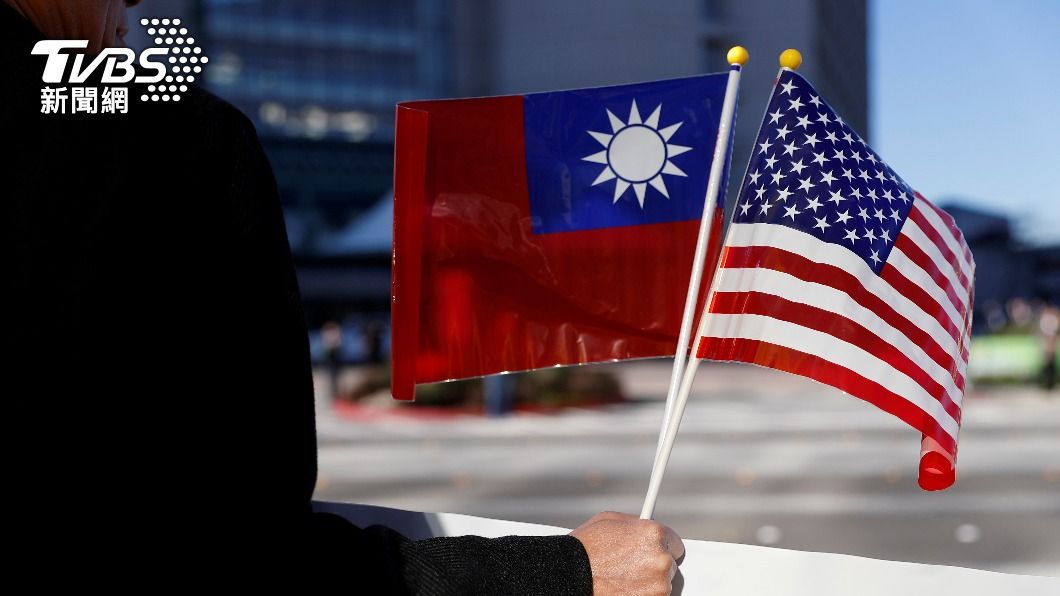
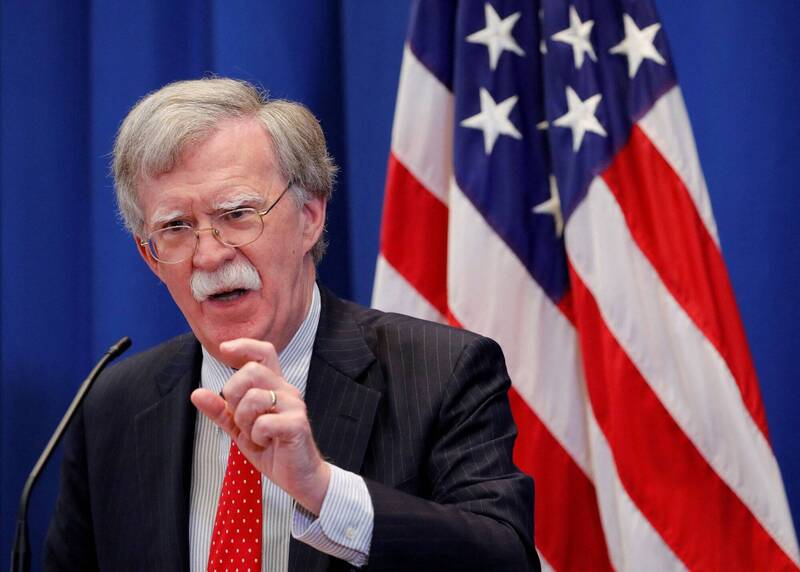
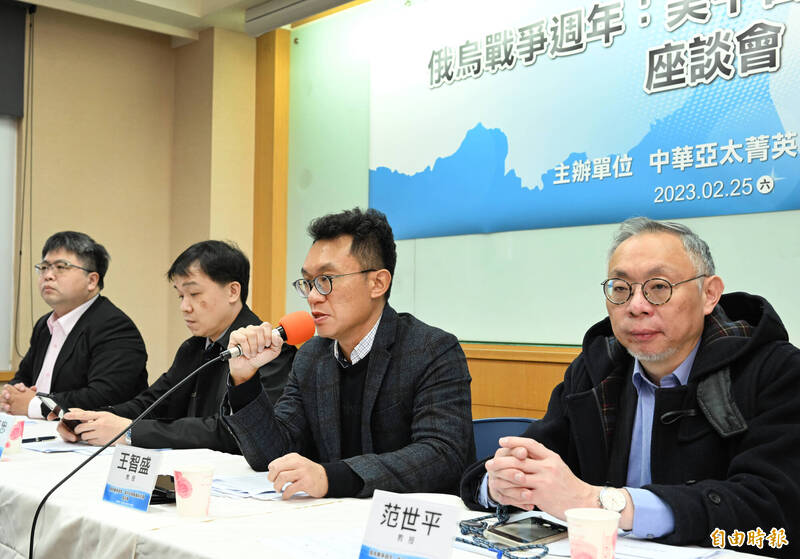
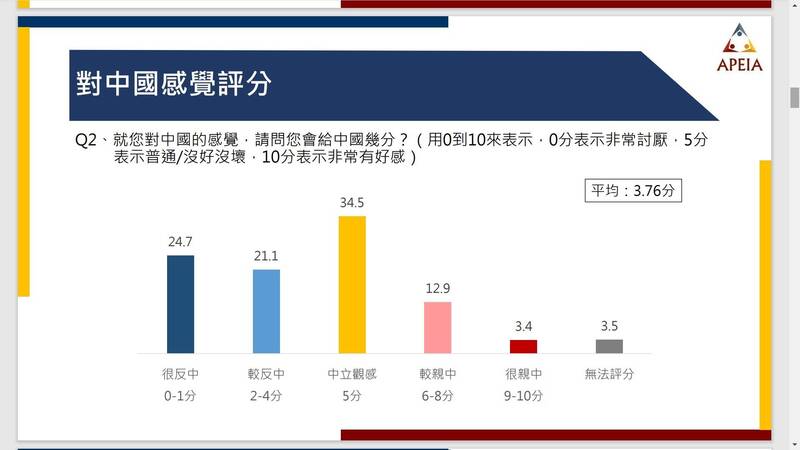
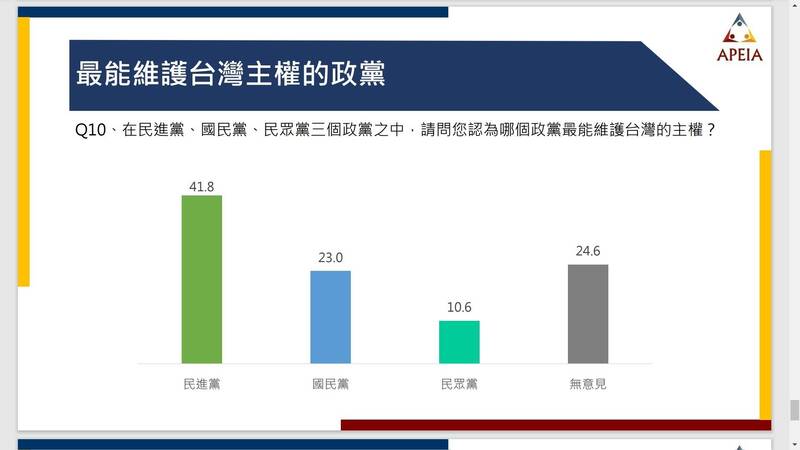
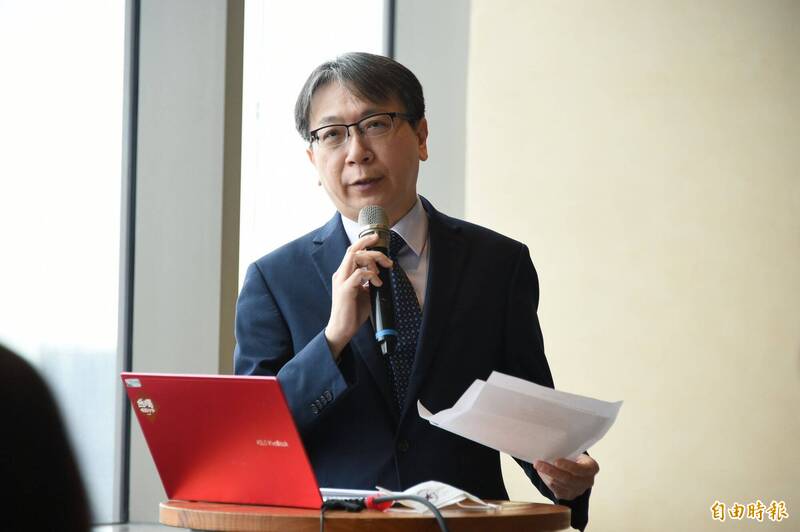


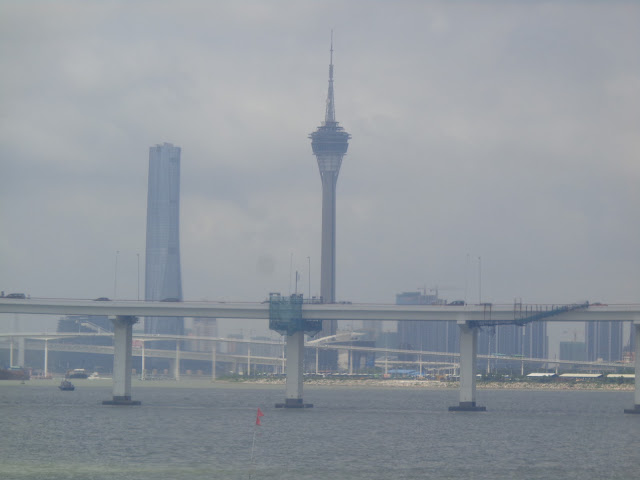




No comments:
Post a Comment